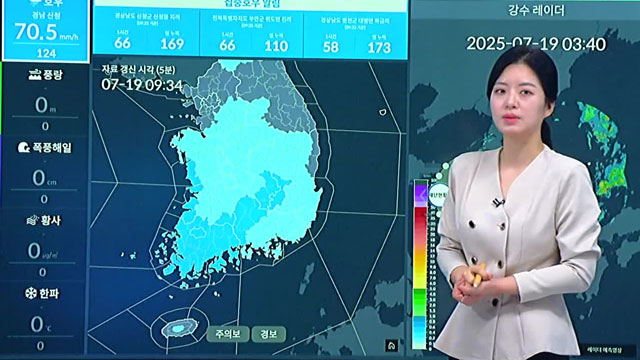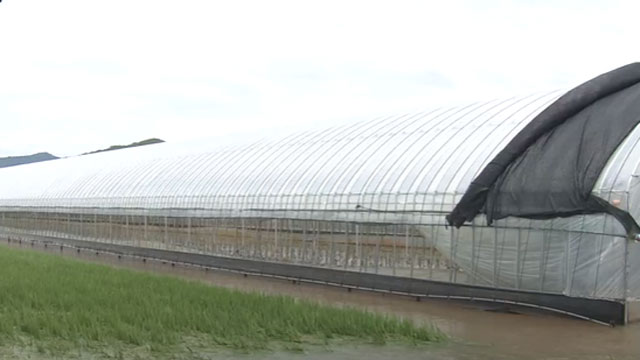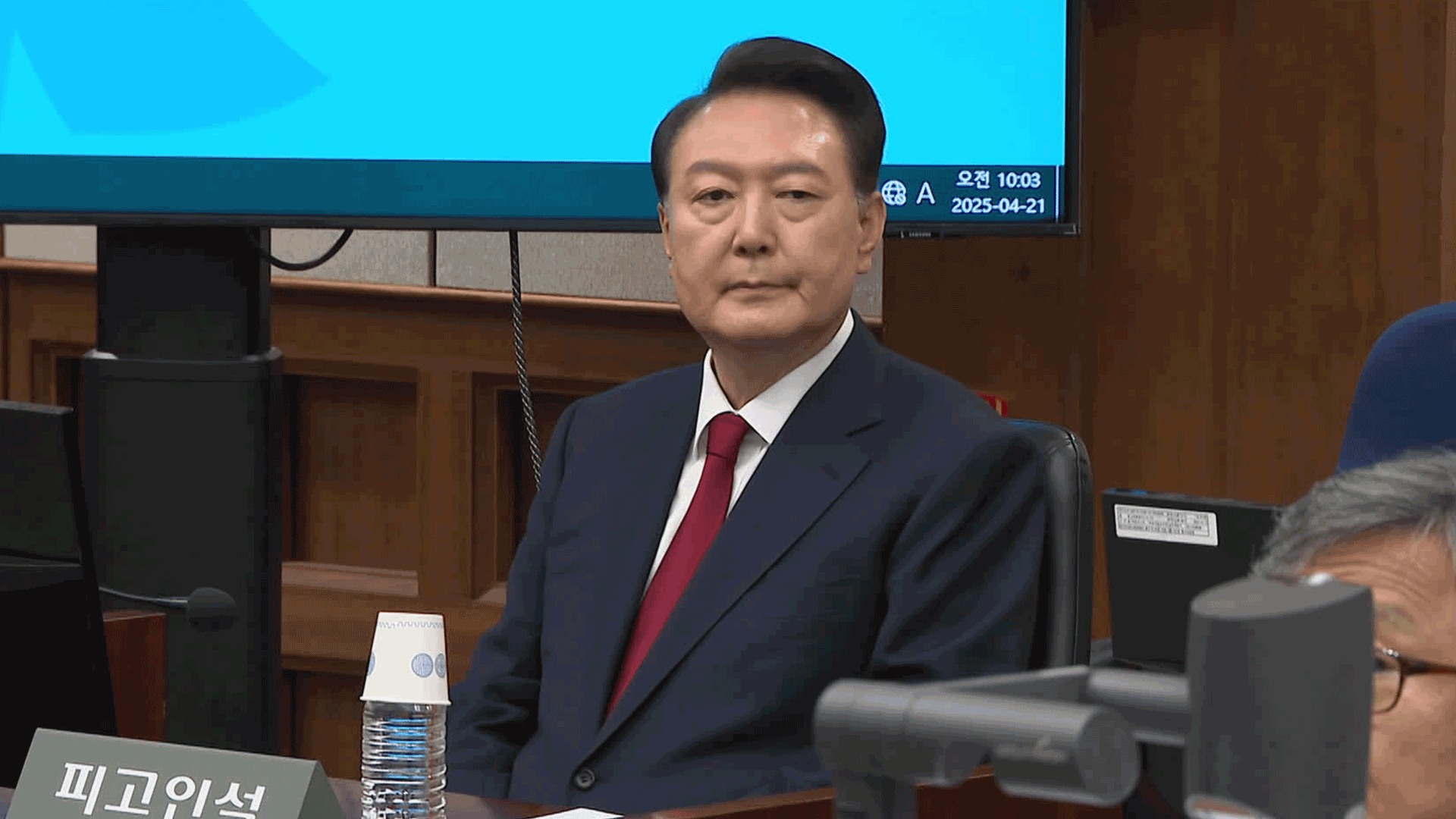CONTINUED ANTI-JAPANESE CAMPAIGN
입력 2019.10.07 (15:43)
수정 2019.10.07 (16:51)
읽어주기 기능은 크롬기반의
브라우저에서만 사용하실 수 있습니다.
[Anchor Lead]
South Koreans are continuing to shun trips to Japan in protest against Tokyo's export curbs, which appear to be retaliatory economic moves on Seoul. The anti-Japanese campaign is dealing a blow to South Korea's tourism industry and smaller, local international airports.
[Pkg]
Yangyang International Airport in Gangwon-do Province handles flights to and from Kitakyushu, Japan. The airport is almost empty with fewer passengers using it amid a boycott of trips to the neighboring country. In the first week of July, seven flights served 90 passengers traveling between Yangyang and Japan. But in the fourth week of August, only 13 travelers used six flights on the same route. This means a drop in earnings and profit both for airlines and the airport. Yangyang Airport has seen a whopping 65 percent plunge in passenger service charges from 8.6 million won last year to just three million won this year. Yangyang has suffered the largest drop in earnings among South Korea's seven local airports operating flights to Japan. Operators of international ocean liners are also being hit by the anti-Japanese campaign. In July, less than 560 tourists used Donghae Port to visit Japan. The number fell to some 450 in August and continues fall.
[Soundbite] (DONGHAE PORT OFFICIAL(VOICE MODIFIED)) : "It began falling significantly from July this year. (Is it expected to drop for the time being until September or October?) Yes. The decrease will likely continue."
Despite the financial losses, airlines and ocean liners have no options, but to just stand by and watch how the situation unfolds because it is difficult for them to reopen a route once they close it. There have been calls to develop more air and sea routes linking Gangwon-do to other international destinations amid the prolonged diplomatic spat between Seoul and Tokyo.
South Koreans are continuing to shun trips to Japan in protest against Tokyo's export curbs, which appear to be retaliatory economic moves on Seoul. The anti-Japanese campaign is dealing a blow to South Korea's tourism industry and smaller, local international airports.
[Pkg]
Yangyang International Airport in Gangwon-do Province handles flights to and from Kitakyushu, Japan. The airport is almost empty with fewer passengers using it amid a boycott of trips to the neighboring country. In the first week of July, seven flights served 90 passengers traveling between Yangyang and Japan. But in the fourth week of August, only 13 travelers used six flights on the same route. This means a drop in earnings and profit both for airlines and the airport. Yangyang Airport has seen a whopping 65 percent plunge in passenger service charges from 8.6 million won last year to just three million won this year. Yangyang has suffered the largest drop in earnings among South Korea's seven local airports operating flights to Japan. Operators of international ocean liners are also being hit by the anti-Japanese campaign. In July, less than 560 tourists used Donghae Port to visit Japan. The number fell to some 450 in August and continues fall.
[Soundbite] (DONGHAE PORT OFFICIAL(VOICE MODIFIED)) : "It began falling significantly from July this year. (Is it expected to drop for the time being until September or October?) Yes. The decrease will likely continue."
Despite the financial losses, airlines and ocean liners have no options, but to just stand by and watch how the situation unfolds because it is difficult for them to reopen a route once they close it. There have been calls to develop more air and sea routes linking Gangwon-do to other international destinations amid the prolonged diplomatic spat between Seoul and Tokyo.
■ 제보하기
▷ 카카오톡 : 'KBS제보' 검색, 채널 추가
▷ 전화 : 02-781-1234, 4444
▷ 이메일 : kbs1234@kbs.co.kr
▷ 유튜브, 네이버, 카카오에서도 KBS뉴스를 구독해주세요!
- CONTINUED ANTI-JAPANESE CAMPAIGN
-
- 입력 2019-10-07 15:55:05
- 수정2019-10-07 16:51:05

[Anchor Lead]
South Koreans are continuing to shun trips to Japan in protest against Tokyo's export curbs, which appear to be retaliatory economic moves on Seoul. The anti-Japanese campaign is dealing a blow to South Korea's tourism industry and smaller, local international airports.
[Pkg]
Yangyang International Airport in Gangwon-do Province handles flights to and from Kitakyushu, Japan. The airport is almost empty with fewer passengers using it amid a boycott of trips to the neighboring country. In the first week of July, seven flights served 90 passengers traveling between Yangyang and Japan. But in the fourth week of August, only 13 travelers used six flights on the same route. This means a drop in earnings and profit both for airlines and the airport. Yangyang Airport has seen a whopping 65 percent plunge in passenger service charges from 8.6 million won last year to just three million won this year. Yangyang has suffered the largest drop in earnings among South Korea's seven local airports operating flights to Japan. Operators of international ocean liners are also being hit by the anti-Japanese campaign. In July, less than 560 tourists used Donghae Port to visit Japan. The number fell to some 450 in August and continues fall.
[Soundbite] (DONGHAE PORT OFFICIAL(VOICE MODIFIED)) : "It began falling significantly from July this year. (Is it expected to drop for the time being until September or October?) Yes. The decrease will likely continue."
Despite the financial losses, airlines and ocean liners have no options, but to just stand by and watch how the situation unfolds because it is difficult for them to reopen a route once they close it. There have been calls to develop more air and sea routes linking Gangwon-do to other international destinations amid the prolonged diplomatic spat between Seoul and Tokyo.
South Koreans are continuing to shun trips to Japan in protest against Tokyo's export curbs, which appear to be retaliatory economic moves on Seoul. The anti-Japanese campaign is dealing a blow to South Korea's tourism industry and smaller, local international airports.
[Pkg]
Yangyang International Airport in Gangwon-do Province handles flights to and from Kitakyushu, Japan. The airport is almost empty with fewer passengers using it amid a boycott of trips to the neighboring country. In the first week of July, seven flights served 90 passengers traveling between Yangyang and Japan. But in the fourth week of August, only 13 travelers used six flights on the same route. This means a drop in earnings and profit both for airlines and the airport. Yangyang Airport has seen a whopping 65 percent plunge in passenger service charges from 8.6 million won last year to just three million won this year. Yangyang has suffered the largest drop in earnings among South Korea's seven local airports operating flights to Japan. Operators of international ocean liners are also being hit by the anti-Japanese campaign. In July, less than 560 tourists used Donghae Port to visit Japan. The number fell to some 450 in August and continues fall.
[Soundbite] (DONGHAE PORT OFFICIAL(VOICE MODIFIED)) : "It began falling significantly from July this year. (Is it expected to drop for the time being until September or October?) Yes. The decrease will likely continue."
Despite the financial losses, airlines and ocean liners have no options, but to just stand by and watch how the situation unfolds because it is difficult for them to reopen a route once they close it. There have been calls to develop more air and sea routes linking Gangwon-do to other international destinations amid the prolonged diplomatic spat between Seoul and Tokyo.
이 기사가 좋으셨다면
-
좋아요
0
-
응원해요
0
-
후속 원해요
0

















이 기사에 대한 의견을 남겨주세요.